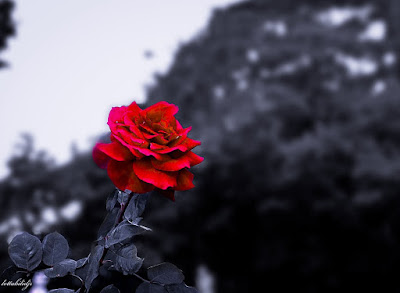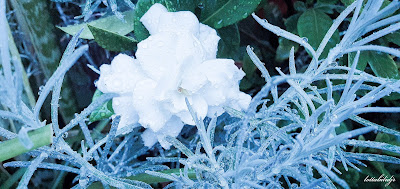What is a trail for?A trail is a pathway created for a specific objective: to reach a certain point. Mountaineers, for example, follow a course to arrive at a destination. This track guides them through any landscape that they encounter along the way. As such, no geographical setting is non-traversable if one has a trail to follow.
But not all roads are the same. At some point a trail is treacherous for travellers to pass through due to its disorienting environment. Case in point is the notorious condition of the Himalayan ranges. It has, according to experienced summiteers, the toughest path in both eastern and western ceilings on earth. In fact, the highest point in that region—found on Mt. Everest—bears witness to numerous expeditions that defy the human spirit. According to statistics, only 70% of hikers completed the grueling climb after they embarked on their journey at the foothill. Roughly, out of 5,000 people who attempted to reach the peak, 219 of them died before having got the chance to stand on the ridge. Countless of them failed, only a few survived. Yet, despite its difficult trail, the “mountain of doom”—an ill-famed title due to its harsh habitation—still claims the most visits among all mountains around the world. Even so, the challenge stays the same: to surmount the insurmountable.
But why, despite an unwelcoming reputation, climb such a mountain?
Albert Camus answers this through a Greek allegory. Sisyphus, like all mountaineers, is no stranger to a trip uphill. He knows the pain and the struggle to reach the height. What makes his ascent different though is that, as punishment by the gods, he carries with him a boulder of herculean mass to be pushed along the way. He moves it forward until it reaches the edge. He then waits for the rock to fall on its own weight. As he blankly stares through the rock stumbling down the abyss, he catches his breath in anticipation of his insane penalty. He rushes downhill. He embraces his rock. He clutches his hands to it and, with all his strength, propels the rock to the same trail again. Tedious and boring, he goes back to his rock trudging. The monotony continues not for a day but for eternity. One then can imagine the face of a man with a heavy body drained throughout the day’s work doing his routine in no definite reason. Indeed, “[…] there is no more dreadful punishment than futile and hopeless labour.”
Nevertheless, despite an injured body caused by constricting stress, Sisyphus regains his dignity by conquering the rock. He understands his situation. He knows that his life is no different from the rest. “[T]he workman of today,” says Camus, “works every day in his life at the same tasks and his fate is no less [strange].” But what separates him from other mortals is that his state—despite its being scorned by the gods—is intensified by his resiliency. He acknowledges his human condition like no one else. As a result, the return towards his rock marks his defiance over everything. Sisyphus, compared to those climbers who want to reach the top of Mt. Everest, displays his passion to prevail over what is given in life, what is laid down at hand. Through this, he denies submission to any trial. He becomes stronger than his rock and “superior” to his fate. He turns out to be “the master of his days.”
What merit is there to carry one’s rock?
To Camus, a rock embodies a life of undoubted struggle. “Living naturally is never easy,” he says. Even Sisyphus, who accepts the sterility of a life pointed towards an end, does not denounce the wearying effort to endure a situation devoid of meaning. Until man leaves, he will never be able to free himself from life’s series of illogical situations. Death, in fact, is an extremely ridiculous reality. That is, man exists only to die. His assumption to life is his very own admission to death. The madness of finding reason in every unreasonableness is the conforming state of absurdity. Camus expounds,
A world that can be explained even with bad reasons is a familiar world. But, on the other hand, in a universe suddenly divested of illusions and lights, man feels an alien, a stranger. His exile is without remedy since he is deprived of the memory of a lost home or the hope of a promised land. This divorce between man and his life, the actor and his setting, is properly the feeling of absurdity… it can be seen, without further explanation, that there is a direct connection between this feeling and the longing for death.
In the article Suicide: An Existential Crisis, the writer believes that the absurd intensifies “the ‘pulling effect’ of each despairing poles from which the individual finds it difficult to sustain, and even understand.” And since it fails to explain the tension of each side, “[man] stripped by the false impression of a happy life which leads him, at the end of the day, to the uncertainty of death and a life of confounding futility [is] forced to ask whether life is worth living at all.”
In view of this, the rock becomes a quandary: what point is there in living if life ends in death? “Does the absurd [life] dictate death?” Sisyphus’ answer is of existential significance. Without hesitation he inches back to his rock again. He lives his life in compliance to no one. He knows that, despite absurdity, his uprising validates his sole conviction—to conquer the inevitability of death with defiance. To defy here means to ready oneself to transcend over difficulties; to rise above a tough trail. This personal insurrection, therefore, is the freedom to desire and live passionately even in the absence of reason. Miley Cyrus must have read The Myth of Sisyphus in her song The Climb which says,
I can almost see it. The dream I’m dreaming,
but there’s a voice inside of my head
You’ll never reach it, Every step I’m taking
Every move I make, Feels lost with no direction,
My faith is shakin’ But I gotta keep trying,
Gotta keep my head held high
(Chorus)
… Sometimes I’m gonna wanna have to lose
Ain’t about how fast I get there.
Ain’t about what’s waiting in the other side.
It’s the climb
… The struggles I’m facing
The chances I’m facing sometimes might knock me down,
but No, I am not breaking
… and I, gotta be strong
In perspective, Sisyphus exemplifies the truth of what it is to be human. By accepting his fate, he prepares himself for what lies ahead. He knows that even at the foothill, his torment already begins. The trail and the rock are now in one place. All he has to do is breathe out of disbelief. His anguish, which starts at his birth, is certain after all. This is the reality which he must accept. Upon recognition of the unavoidable conditions, Sisyphus slowly casts his eyes on the sky. The mental pain then sinks in. He knows that, like all mortals, the trip to the crest is a back-and-turn date with death. Yet, he worries about nothing since he knows that, with exemption of no one, he cannot run away from it. His journey comes to a completion only when he liberates himself from the anxiety of a life chastised towards an end. His remedy is simply to continue living. The rock of Sisyphus, therefore, and the trail that each trekker walks through essentially shows one thing: “If the descent [or ascent] is sometimes performed in sorrow, it can also take place in joy.” Despite this absurd existence, man must sustain his progressive disposition until death comes. Only then, like all men who “struggle towards the heights”, can Sisyphus be “imagine[d] happy.”
Lot Tabilid,Jr. Chapter 8: "Mindfulness of Death," Thinking Human: A Comprehensive Worktext in Introduction to the Philosophy of the Human Person for Senior High School (USC Press, 2016), 95-108.




















